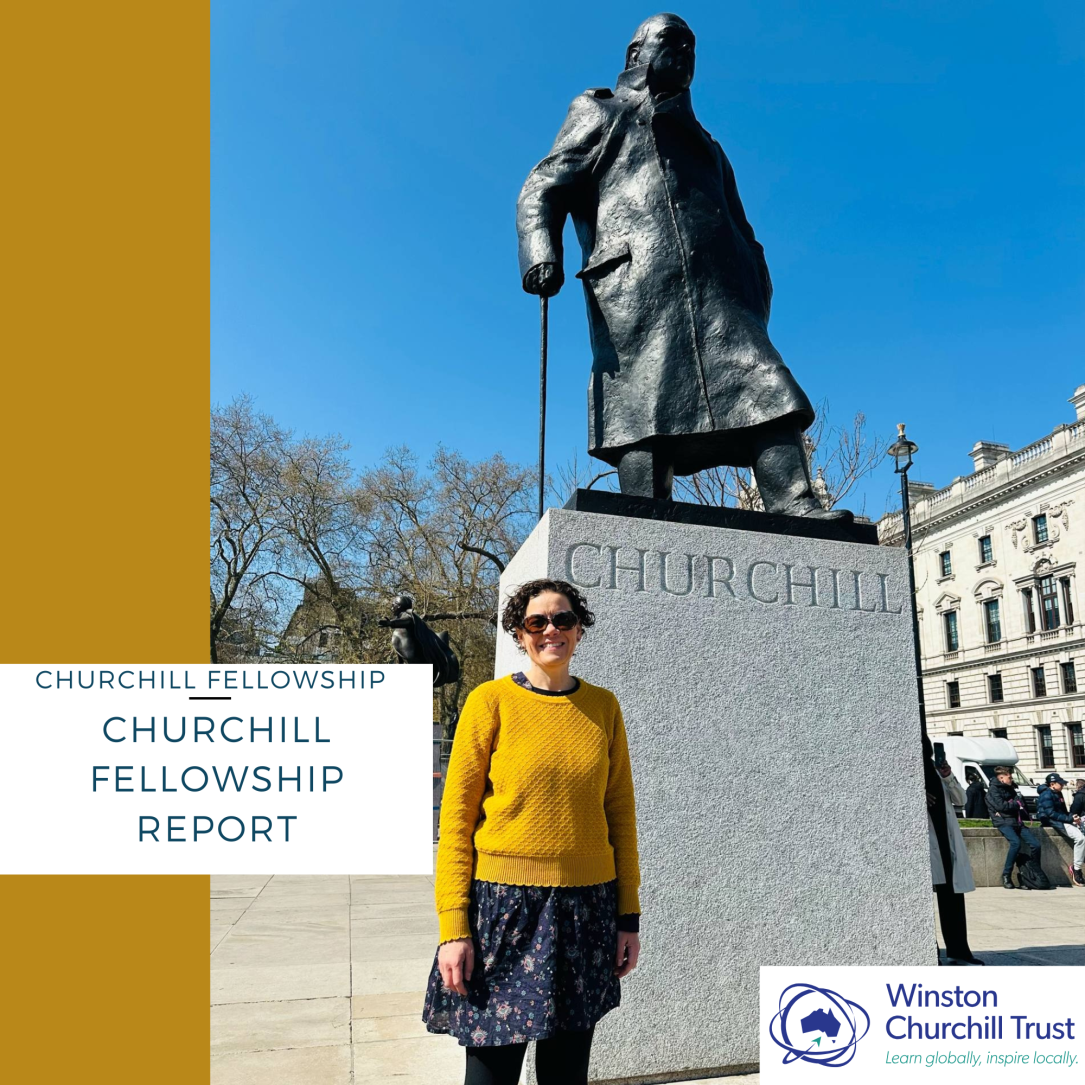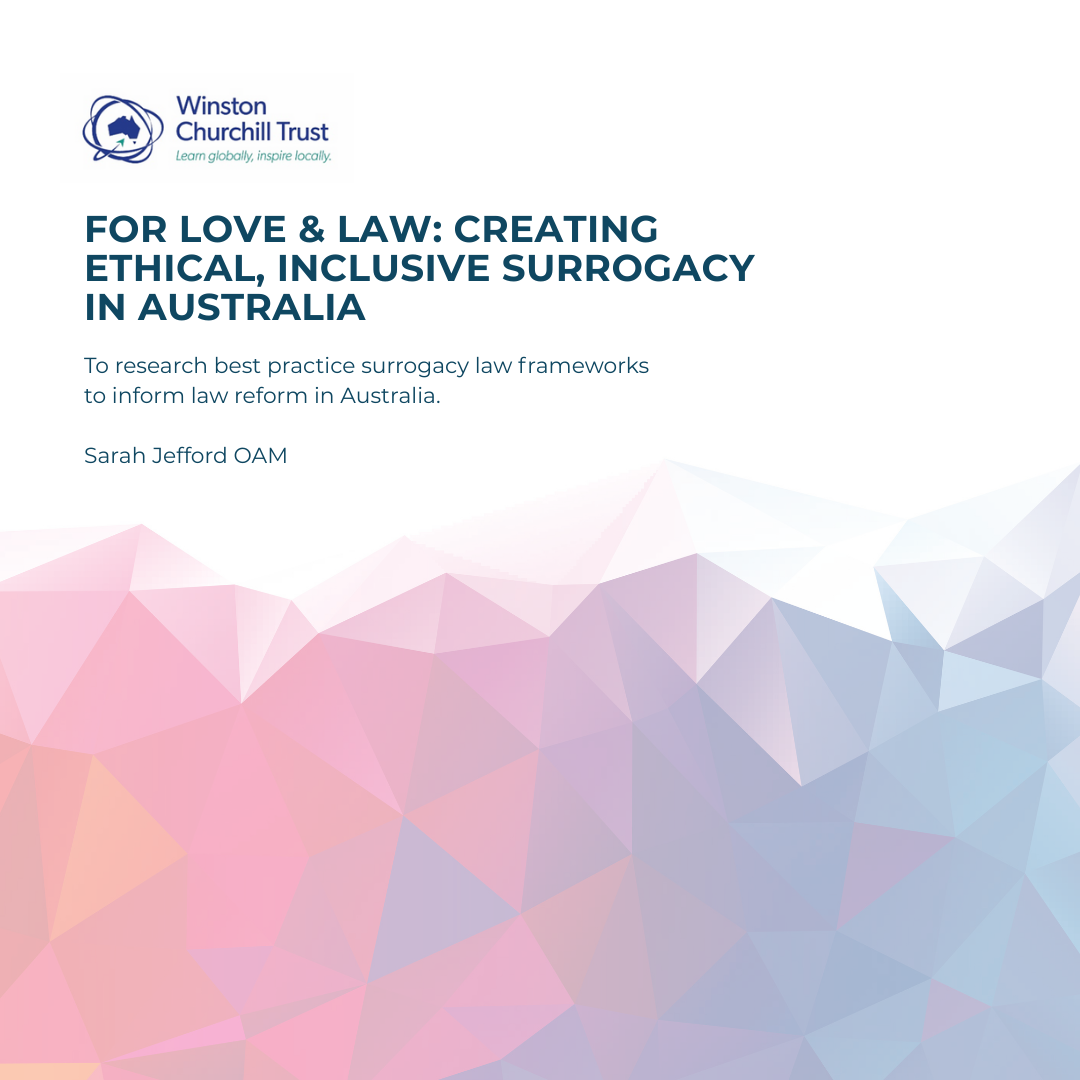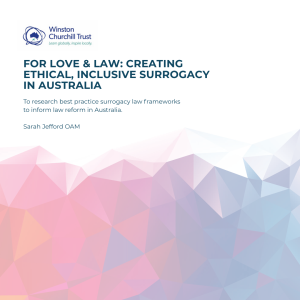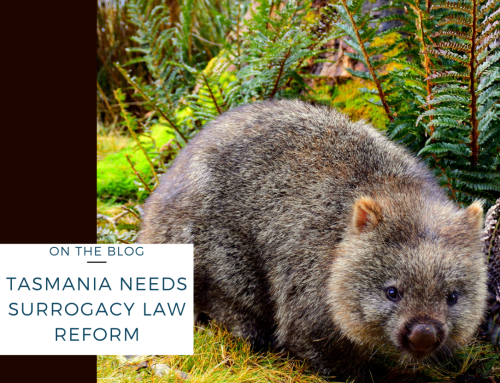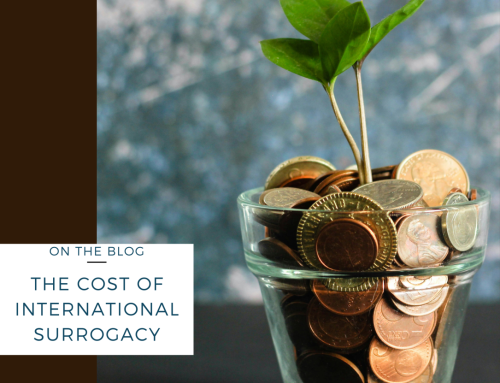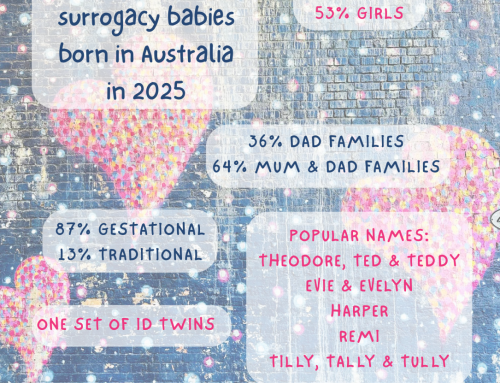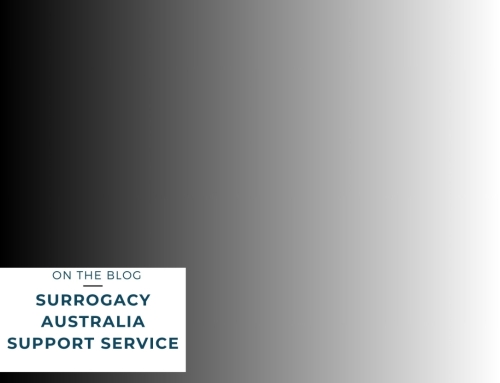Sarah Jefford was awarded a Churchill Fellowship in 2024, to research best practice surrogacy to inform law reform in Australia. Sarah travelled overseas between March and May 2025, meeting with advocates, community and professionals in the surrogacy industry to complete her Fellowship research.
Sarah’s final report, For Love & Law: Creating Ethical, Inclusive Surrogacy in Australia, was published by the Churchill Trust in August 2025.
Sarah’s travel took her to the International Surrogacy Forum in Cape Town, South Africa. Sarah presented at the conference on surrogacy and financial compensation and the need to regulate the surrogacy industries.
After Cape Town, Sarah headed to Ireland and met with lawyers Annette Hickey and Fiona Duffy, former senator Mary Seery Kearney and advocate and mother Ciara Merrigan of Irish Families Through Surrogacy. You can read Sarah’s reflections on Irish surrogacy law reform and campaigning.

Off to London and Canterbury, where Sarah met with Professor Kirsty Horsey, Law Commissioner Professor Nicholas Hopkins, lawyers Natalie Gamble and Colin Rogerson and CEO of SurrogacyUK, Sarah Jones. Her reflections on England inspired what law reform might look like in Australia.
In Canada, Sarah met with lawyers Sara Cohen, Kathleen Adams and Cindy Wasser and advocate and surrogate Sara Fehrman to understand the Canadian experience. We often hear that Canada has a better system than Australia, but we should consider that less regulation is not better and leaves parties vulnerable.
Sarah travelled to New York and was excited to hear about regulation of surrogacy matching services, meeting with Alcea Surrogacy’s Angela and Madison. New York has codified a Charter of Rights for surrogates and is leading the way on best practice surrogacy.
Sarah also visited Puerto Rico for the Academy of Adoption and Assisted Reproduction Attorneys conference, meeting with some of the 500 members of AAAA and being inspired by what we can achieve in Australia.
While the final Churchill report comprehensive, Sarah’s recommendations for reforming surrogacy in Australia can be broadly outlined below:
- We need a national surrogacy framework for the whole of Australia. Surrogacy in Australia should be regulated by federal family law and dealt with by the Federal Circuit and Family Court of Australia. Judicial officers should be specialised and trained in surrogacy, family law and parentage.
. - Eligibility: Anyone who wishes to engage in surrogacy in Australia should have the opportunity to do so, free from discrimination. There should be no requirement to prove a ‘medical’ or ‘social’ need for surrogacy.
. - We should establish a national Assisted Reproductive Treatment Commission, a national regulatory body to oversee all surrogacy and ART family creation, similar to Victoria’s Patient Review Panel. The ART Commission should implement standards and requirements for surrogacy applications before the parties proceed.
. - Pre-birth transfer of parentage, to overcome many of the challenges we have with our existing post-birth transfer of parentage. and recognise the intended parents from birth.
. - A surrogate’s consent, and that of her partner, should be dispensable. A parentage order should be made if it is in the child’s best interests, even in cases where the surrogate or their partner is unwilling or unable to provide their consent.
.
- We need to compensate surrogates, for the work of pregnancy and birth. Payments can be capped and regulated. Compensated surrogacy would go a long way to make surrogacy accessible in Australia, reducing the instances of intended parents pursuing surrogacy overseas.
. - Regulate the surrogacy industry. The surrogacy industry – trade shows and matching services that do not employ qualified professionals like counsellors and lawyers – are almost entirely unregulated in Australia. We can regulate the industry to protect everyone and make services licensed and accountable.
. - Hospitals and healthcare providers need to be better educated and to implement inclusive surrogacy policies. Surrogacy teams deserve the best possible care during the pregnancy and birth.
. - Government services like Medicare and Centrelink, citizenship and passports offices should implement policies that recognise legal parentage and ensure parents can exercise parental responsibility and the children born can access services and healthcare.
. - Decriminalise international commercial surrogacy. It is not in a child’s best interests that their birth, or their parents are criminalised, nor are the laws effective at deterring anyone.
. - Awareness and education – the best way to reduce instances of human trafficking and poor outcomes, is to provide unbiased and credible information for everyone involved. The Australian government’s Smartraveller website should be developed to provide more comprehensive information and we need an awareness campaign to promote surrogacy in Australia.
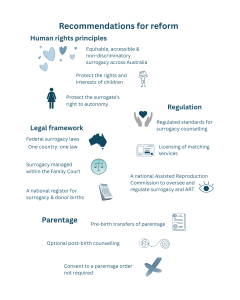
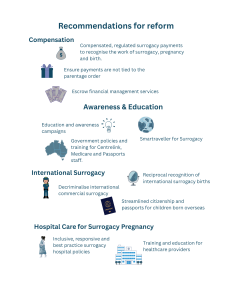
Sarah presented her findings at the inaugural Australia New Zealand Fertility Law and Ethics Symposium in October 2025. The Australian Law Reform Commission is reviewing surrogacy in Australia and the Discussion paper is due for release in November 2025. Sarah’s research will help inform the review and the campaign will continue when government receives the ALRC’s final report.

